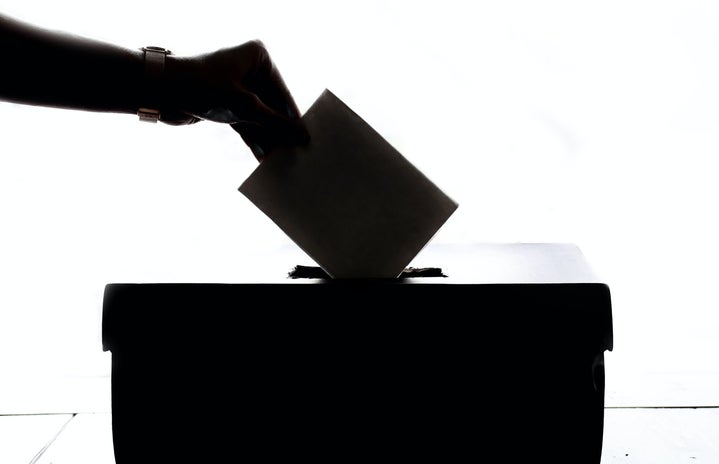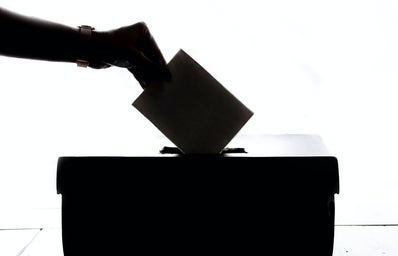On the 26th of September, German citizens sent in their votes for the parties and individuals they want to compose their new government. This election marks a big change, as it is the first one in 16 years in which Chancellor Angela Merkel has not run. If you’re curious for some quick “TLDR” coverage of this significant election, read on for explanations of the Who, the What, and the How for all possible outcomes of the composition of the German government this coming year.
Angela Merkel – A Tough Act to Follow
Angela Merkel, the country’s first female and Eastern German Chancellor, has led the country since 2005. Due to her long-term service, many Germans have come to see her as a constant, reassuring figure. She has served as a strong-willed leader, acting rigidly, and standing up for what she feels is right, regardless of potential unpopular opinions and reactions. This consistency was especially evident in her policies mitigating the 2008 economic crisis and 2015 refugee crisis, where she navigated difficult times with strength and a steady hand within her own country, but also in German relations with the rest of its European partners. consequently, the news of her retirement has left many Germans feeling uprooted, and has sent shock waves across Europe, where she was viewed by many as the de-facto leader. The uncertainty of the pandemic-marked past two years in conjunction with the matriarchal role that Merkel has played as Chancellor has left many Germans simply not wanting to lose the stability and reassurance that she provided. As such, the German public has made it clear that they are looking to elect a similar figure – a chancellor who will emulate the consistency and safety that Merkel afforded. Evidently, this election will be a question of not only finding a suitable political coalition for a new government, but also finding a chancellor who can effectively and completely fill the seemingly enormous shoes of the applauded Angela Merkel.
Central Parties and Players
The main frontrunners of the election are Armin Laschet from Merkel’s own Christian Democratic Party (CDU/CSU), Annalena Baerbock from the Green Party, and Olaf Scholz from the Social Democratic Party (SPD). Other parties included in the mix were the Free Democrats, Far Right Alternative, and the Left Party. In the beginning of their election campaigns, Laschet seemed to be the favored and ‘safe’ candidate. He symbolizes the continuity German voters want as he is from CDU, a long-term Merkel ally, and has had governing experience in North Rhine-Westphalia. There was the hope that he would take Merkel’s place as she left it and without generating much change. However, during the torrential rains and floods plaguing western Germany over the summer which claimed more than 180 lives, Laschet was caught giggling on camera. This essentially communicated to his voters that he was no Angela Merkel, and was not fit to lead the country. Annalena Baerbock – the first ever proposed candidate for the Green Party, a progressive, environmentalist party focusing on the impacts and mitigation of Climate Change – suffered a similar decline. She was clearly the radical choice throughout the campaign season; she had bold, innovative ideas that focused on investments aimed at transitioning the German economy into becoming completely carbon-neutral within a relatively short period of time. Baerbock also appealed to voters because she would have been not only the second female Chancellor, but the youngest ever, at a mere 40-years-old. However, her inexperience and the threat she posed of completely changing the country’s political climate left German citizens feeling uncomfortable voting for her. Baerbock also suffered from a major plagiarism scandal, where she published a book without properly attributing her sources. This scandal, combined with her inexperience, shifted voters’ loyalties to other candidates. Finally, there is Olaf Scholz, the underdog of the race, and Merkel’s finance minister for the past four years of the “Grosse-Koalition” government. Interestingly, Scholz is a Social Democrat a party traditionally opposed to Merkel’s CDU. Though widely considered ‘boring’ by the German people, his campaign strategy has proved the most effective in the long run. After starting off with little attention, as his top opponents began to self-destruct in the public gaze, Scholz remained calm and collected, replicating the reassuring force of Merkel. His campaign revolved around his promise to emulate Merkel in every way possible: he even printed posters with the German, feminine form of the title “Chancellor” and was actively photographed with her typical “rhombus” hand position.
September 26th’s Results and What they Mean for the New German Government
Even though these three candidates appear different, the elections were never likely to produce clear results on who will obtain Chancellorship. Before filling this position, a government must be formed. As of the morning of the 26th, the polls left with SPD in the lead with 25.7% of votes, 1.6% more than the CDU/CSU’s 24.1%. The second runners were the Green Party with 14.8% (their best ever result), FDP with 11.5%, AFD with 10.3% and finally, the Left with 4.9%. These results do not indicate whether there is a clear majority in support of Mr. Sholtz, even if he obtained the largest portion of the vote. In the weeks to follow, there will be discussions among the political parties to come to an agreement on a government program and cabinet composition that could find support from a Parliament’s majority. There appear to be two possible coalitions. The first proposition is a “Jamaica” coalition between the CDU, Greens, and FDP (representing the Black, Green, and Yellow colors of the Jamaican Flag) headed by Mr. Laschet. The second is a “traffic-light” coalition headed by Scholz with the red SDP, green Greens, and yellow FDPs. There might be other possible combinations, but they appear unlikely. However, the FDP and Greens have announced their agreement to explore possible negotiations and/or partnerships with each other before even beginning negotiating with either SDP or CDU/CSU.
And for the Wider European Union?
As Germany is a central player and leader of the EU, this political decision will have a strong impact on future European dealings, policies, and negotiations. Again, Europe sees the retirement of Merkel as impactful to the country’s future, leaving the continent sitting on the edge of their seats awaiting the outcome and formations of this government, and for the next Chancellor to be chosen. Additionally, the absence of clear leadership in Europe is a concern primarily because Macron, the French president, will have to run for reelection in early 2022. Until recently, the German-French partnership proved effective in guiding the EU-level decision process during the crisis of the pandemic, which is unfortunately far from over. If Merkel’s replacement does not have adequate political stature and credibility, the Italian Prime Minister, Mario Draghi, will have to take up the task of political leader of the region, constituting a major geopolitical change.
What is to Happen Next?
There is still time to wait as these negotiations continue on, anywhere from a few weeks to multiple months. However, the candidates have stated that they aim to have everything sorted by the end of the new year. While the SDP and Scholz have emerged in first position, the outcome and future of the cabinet remains very uncertain. The only certainty so far is that until they make an agreement and hold parliamentary elections for the approval of a President Proposed Chancellor, Angela Merkel will remain in office, acting as a reassuring figure even in the most uncertain of times for the German and European people.


